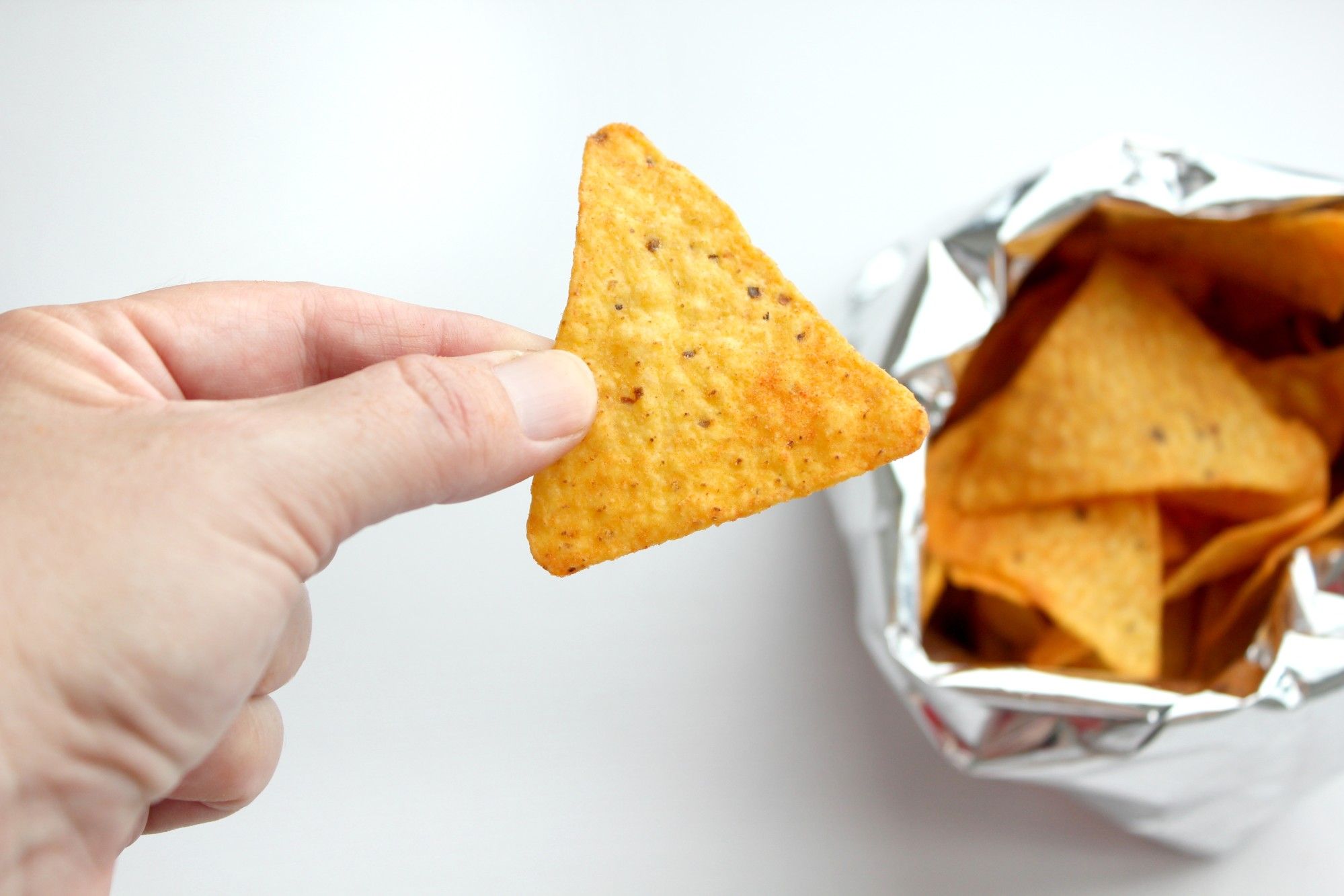Why Should You Avoid Processed Foods?
Does "healthy eating" necessitate the complete elimination of processed foods? And why are they bad for health in the first place? Find out here.

How do you achieve “healthy eating”? ?
For many, that’ll involve adhering to one of the most common “food rules” around: avoid processed foods. Sounds reasonable enough, right?
It's widely accepted now that processed foods are bad for you.
Well … guess what? There’s something fundamentally wrong with categorizing all processed foods as “bad”; and all unprocessed foods as “good”.
And it’s all got to do with the very definition of “processed foods”. So, let’s start from there.
What’s the definition of “processed foods”?
According to the U.S. Department of Agriculture (USDA), all “processed” really means is that the food has been combined with at least one other ingredient – or changes in any way from its natural state (e.g., mixed, cut, canned, or pasteurized).
Meaning? Those 2 jugs of fresh milk in your fridge, along with the pack of frozen broccoli in the freezer, are considered “processed foods”.
You’re probably dealing with a severe case of cognitive dissonance right now.
But that’s not even the worst of it.
Taking things further: considering the definition of “processed foods”, unless you’re consuming a raw food diet where you don’t cook anything – remember, cooking alters the natural state of your food! – there’s no way you’d be able to steer clear of eating processed foods!
That said, it doesn't mean that you can take on an unbridled, "free-for-all" approach when selecting your food choices.
Ultimately, we still know that certain foods (e.g., potatoes compared to mashed potatoes) are more beneficial to your health than others.
So, instead of using the question, "Is this processed or unprocessed?" to guide your dietary choices, here's a more helpful one to use: "Just how heavily processed is this?"
Thus, bringing us to the concept of something called "ultra-processed foods".
What are “ultra-processed” foods?
To understand what “ultra-processed” foods are, we first need to dive deeper into the 3 stages of typical food processing:
- Primary stage: Describes basic preparations that take food from its ground-level form to being edible. Shelling nuts, harvesting grain, and slaughtering chickens are all considered primary processing.
- Secondary stage: You’ll end up with a slightly more complex finished product than in the primary stage of processing. So, freezing, baking, and canning are all considered part of the secondary processing stage.
- Tertiary stage: This is what separates merely “processed” foods from “ultra-processed” foods. It’s at the tertiary stage where flavor injections, added sugars, fats, and chemical preservatives are added.
An easy way to determine if the food you have on hand is so significantly altered that it's hard to recognize the underlying ingredients.
Examples include chocolate bars (main raw ingredient: cacao bean), banana bread (main raw ingredient: bananas), and cereal (main raw ingredient: wheat).
Health dangers of ultra-processed foods
Alright. Now that we’ve gotten that out of the way … you may have a question lingering in your mind: “How bad are ultra-processed foods for my health?”
Well, as it turns out, super.
In fact, there are several adverse health implications (which can be intertwined with each other) associated with the consumption of ultra-processed foods in large quantities:
- Obesity: The issue with ultra-processed foods (that we can all pretty much agree on) is that they’re highly addictive. Think about it: have you ever been able to stop at just one cookie? Coupled with the fact that they’re all very energy-dense, and you have yourself a recipe for weight gain. Research agrees. A 2019 study published in Cell Metabolism, for instance, found that subjects consumed about 500 more calories daily on the ultra-processed diet versus the unprocessed diet.
- Heart disease: Eating a diet full of ultra-processed foods doesn't only take a toll on your waistline but also your heart. According to a 2019 study published in The BMJ, for every 10% increase in the amount of ultra-processed foods you eat, your risk of a heart attack, stroke, or other serious cardiovascular events can increase by 12%.
- Cancer: Scarily enough, the consumption of ultra-processed foods has also been linked to higher cancer risk. According to a 2018 study that followed more than 100,000 adults in France, researchers found that a 10% increase in the proportion of ultra-processed foods in someone's diet is all it takes to lead to a higher overall cancer risk.
- Gastrointestinal issues: Ultra-processed foods aren’t just stuffed with excess sodium and calories, either. They often also contain ingredients that can negatively affect the gut microbiome and barrier. In turn, shining light onto why research shows a link between eating a ton of ultra-processed foods and a greater risk of developing inflammatory bowel disease (IBD).
Don’t eliminate, but cut down
At this point, you might be going into a full-fledged “despair mode”.
If you're like most people, ultra-processed foods are likely a huge part of your routine, everyday pleasures.
It could be your morning bowl of Reese’s Puffs or your evening pot of Ben and Jerry’s ice cream. It’s the afternoon fries and chicken nuggets. Or, it could be the popcorn you snack on in the cinemas on a fun date night out.
Guess what? You can take comfort in that you don't have to cut down out entirely from your life.
Consumed in isolation and moderation, each of these “everyday pleasures” can be perfectly wholesome. So, instead of “eliminating”, try “minimizing”.
Here's a pro tip.
Cooking at home (i.e., meal-prepping) can go a long way toward reducing the amount of ultra-processed foods you consume. Also, schedule your indulgences in advance if need be.
Whatever you do, avoid viewing foods through a “black and white” lens, where you’re simply categorizing them into “good” or “bad” – this can foster an unhealthy relationship with food.
Take a holistic approach to optimizing your health
To end this article … bear in mind that living a healthy lifestyle (which decreases your risk of various chronic health conditions) isn't just about being careful with what you put in your mouth.
For best results, you should take a more holistic approach to your health and wellbeing. Important aspects include:
• Managing stress
• Getting enough sleep
• Staying physically active (by the way: if you have issues sticking to a regular workout routine, GymStreak might prove to be the solution you need)
References
Boston, 677 Huntington Avenue, & Ma 02115 +1495‑1000. (2019, June 24). Processed Foods and Health. The Nutrition Source. https://www.hsph.harvard.edu/nutritionsource/processed-foods/
Fiolet, T., Srour, B., Sellem, L., Kesse-Guyot, E., Allès, B., Méjean, C., Deschasaux, M., Fassier, P., Latino-Martel, P., Beslay, M., Hercberg, S., Lavalette, C., Monteiro, C. A., Julia, C., & Touvier, M. (2018). Consumption of ultra-processed foods and cancer risk: Results from NutriNet-Santé prospective cohort. BMJ, 360, k322. https://doi.org/10.1136/bmj.k322
Hall, K. D., Ayuketah, A., Brychta, R., Cai, H., Cassimatis, T., Chen, K. Y., Chung, S. T., Costa, E., Courville, A., Darcey, V., Fletcher, L. A., Forde, C. G., Gharib, A. M., Guo, J., Howard, R., Joseph, P. V., McGehee, S., Ouwerkerk, R., Raisinger, K., … Zhou, M. (2019). Ultra-Processed Diets Cause Excess Calorie Intake and Weight Gain: An Inpatient Randomized Controlled Trial of Ad Libitum Food Intake. Cell Metabolism, 30(1), 67-77.e3. https://doi.org/10.1016/j.cmet.2019.05.008
Narula, N., Wong, E. C. L., Dehghan, M., Mente, A., Rangarajan, S., Lanas, F., Lopez-Jaramillo, P., Rohatgi, P., Lakshmi, P. V. M., Varma, R. P., Orlandini, A., Avezum, A., Wielgosz, A., Poirier, P., Almadi, M. A., Altuntas, Y., Ng, K. K., Chifamba, J., Yeates, K., … Yusuf, S. (2021). Association of ultra-processed food intake with risk of inflammatory bowel disease: Prospective cohort study. BMJ, 374, n1554. https://doi.org/10.1136/bmj.n1554
Srour, B., Fezeu, L. K., Kesse-Guyot, E., Allès, B., Méjean, C., Andrianasolo, R. M., Chazelas, E., Deschasaux, M., Hercberg, S., Galan, P., Monteiro, C. A., Julia, C., & Touvier, M. (2019). Ultra-processed food intake and risk of cardiovascular disease: Prospective cohort study (NutriNet-Santé). BMJ, 365, l1451. https://doi.org/10.1136/bmj.l1451

